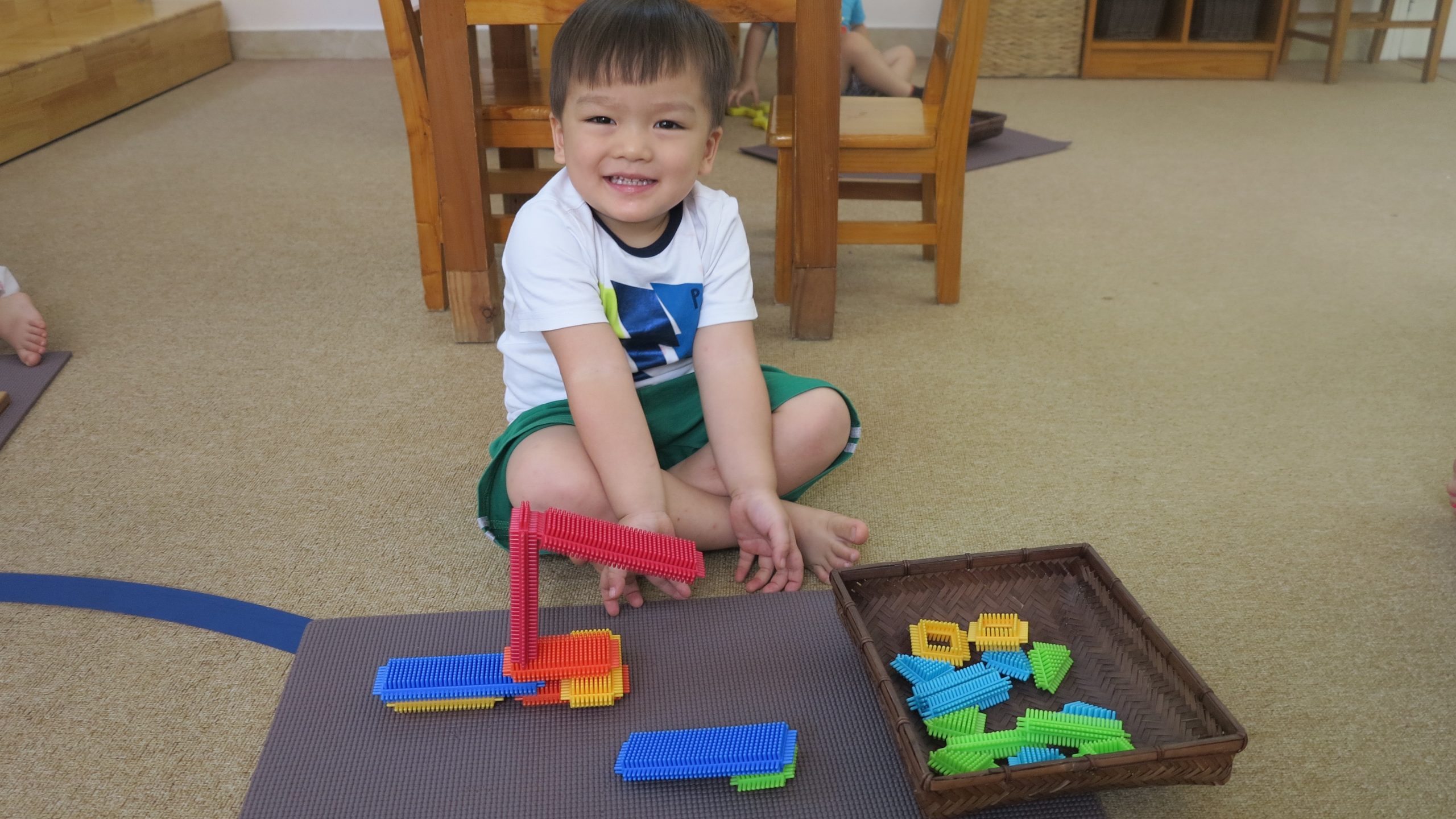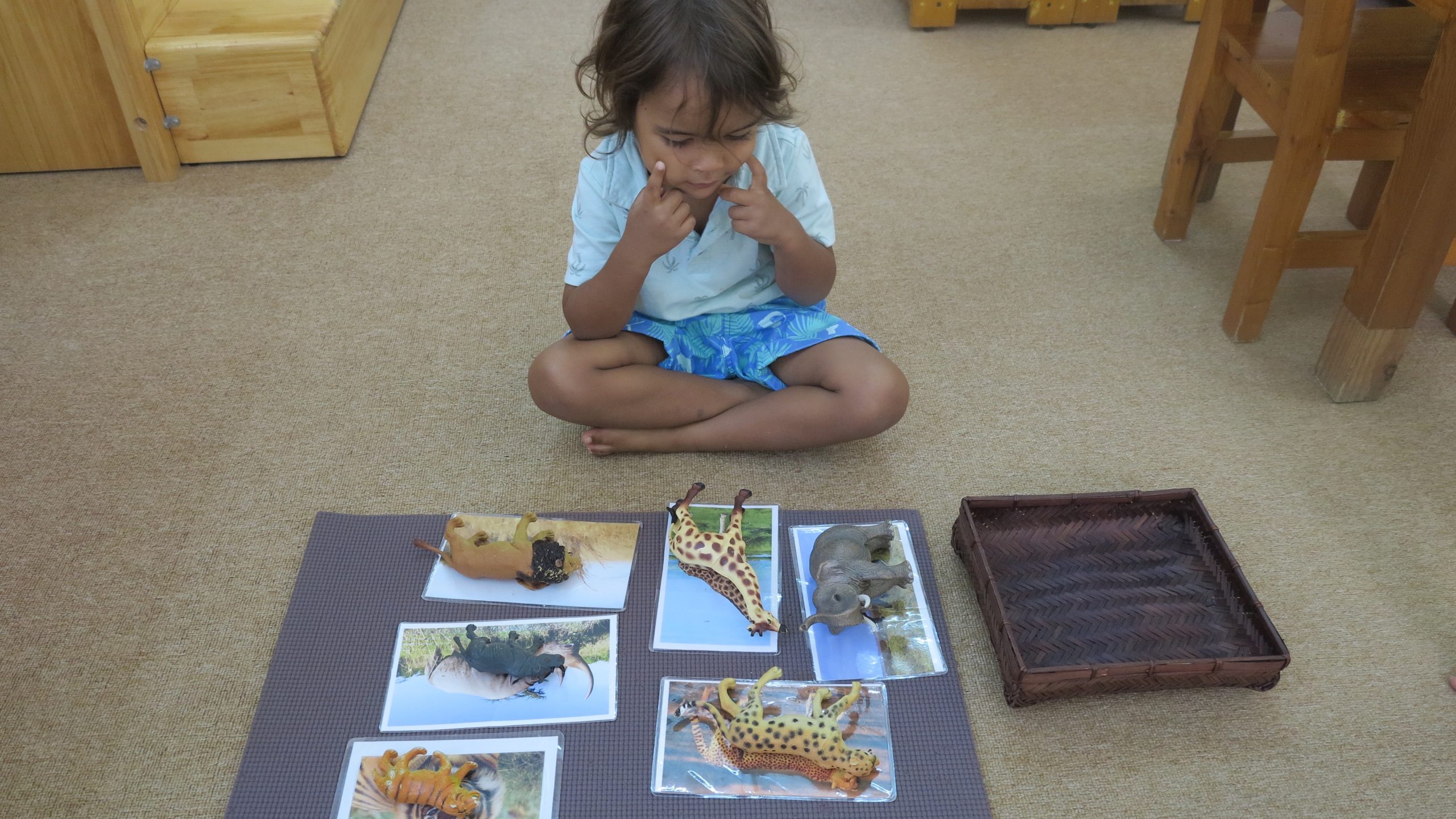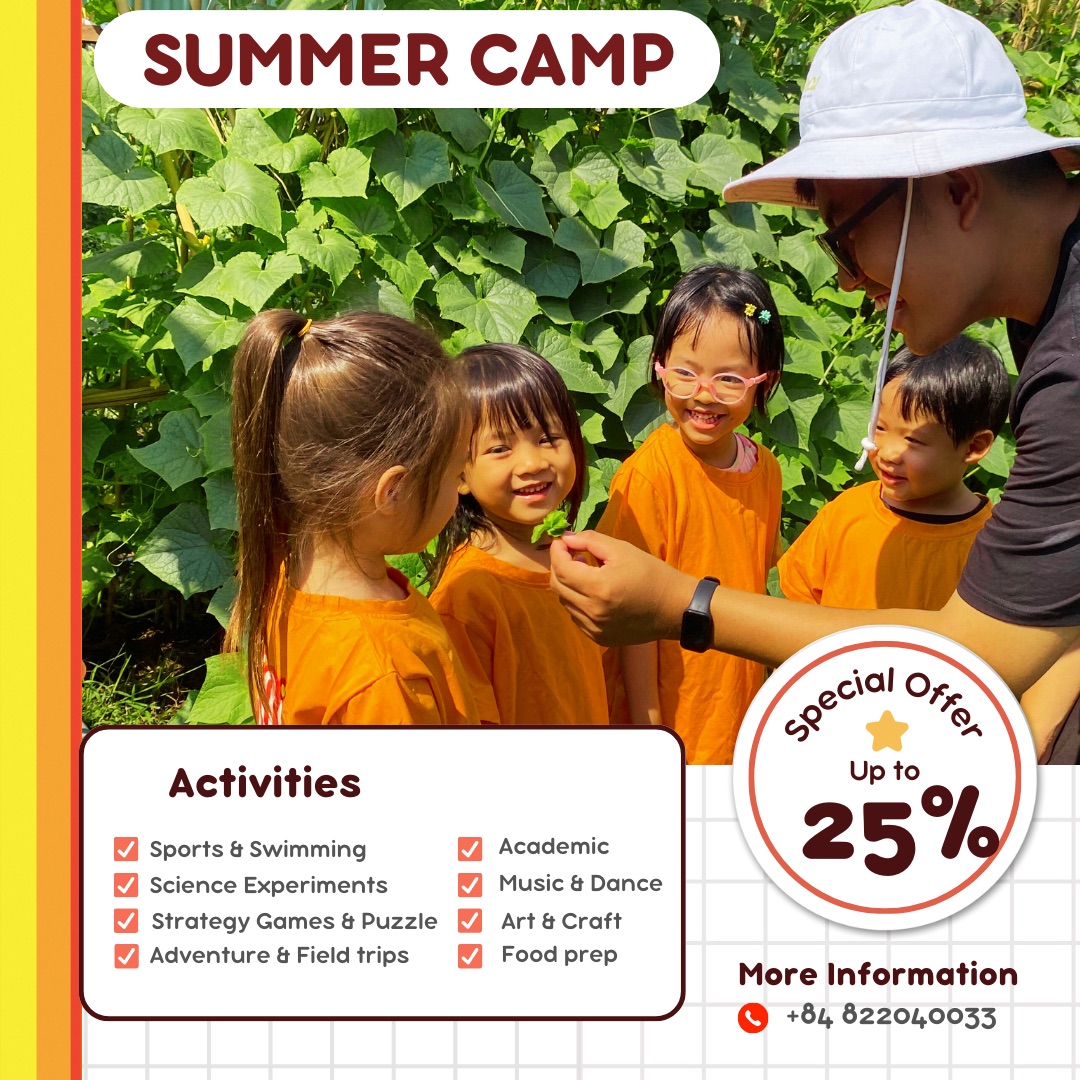Children from 18 months to 3 years old make astonishing achievements in terms of communication, independence, physical movement, problem-solving ability, and social interactions. The Nursery program helps them maximize the gains they make during this crucial time.
Language Development
Between the ages of one and three, a toddler will go from speaking two-word phrases all the way to full sentences, using rather correct grammar. To reduce the typical frustration that toddlers feel when they have not yet developed the verbal skills to share their needs and preferences, it is important for the school and family to join effort to support the toddlers’ early language gains, deliberately and methodically exposing them to the specific language that she will need on a daily basis. This aspect of language learning is an important part of your child’s classroom experience.
From the Nido throughout the Nursery levels, the child is immersed in a rich communication environment where both verbal and non-verbal languages are meaningfully used. From the adult’s care of the child’s basic needs to the classroom activities, the child is communicated verbally with precise and varied vocabulary and grammar, and nonverbally through the adult’s body language, gestures and facial expressions.
The Montessori guide will get down on the child’s level, look in his eyes, and speak to him clearly, so that he can watch the movements made by her mouth or her facial expression as she speaks. Children will enjoy carefully chosen songs, chants, movements, and read-aloud books with poetry, real stories and beautiful illustrations.
Your toddler will be encouraged to communicate his ideas and feelings nonverbally and verbally through cues and responses, and ultimately in words. The main goal in the English language learning in this stage is the development of receptive and expressive skills.
When interested and ready, children will be exposed to activities that prepare them for English language learning at the Children’s House or Kindergarten level.

Confidence and “Practical Life”
Toddlers love to do real-world, adult’s tasks “all by myself!” The toddler community offers your toddler real tools and opportunities through the Montessori “practical life” activities.
Tables, chairs, toilets, and sinks are just the right size and easily accessible to your child. Materials and utensils are sized to a child’s hand and ability, and artworks and mirrors are hung at child’s height. Children use the dressing frames, which teach them to open and close velcro, buttons, snaps, zippers, and more.
Children will polish mirrors or shoes, water plants, or wash real dishes and clothes used in the classroom. She will learn to wipe her own nose and brush her own hair, establishing foundational habits of self-care.
The Montessori practical life exercises allow a child to perform real-world, purposeful tasks that your child can choose and complete independently. Your child will become an important contributor to her community, and practice tasks over and over to achieve mastery, build confidence and self-esteem. This gives rise to a naturally self-reinforcing process: the more he tries, the more he succeeds. The more success he feels, the more confident he becomes. The sense of accomplishment that a child feels each time he achieves something new (something that grown-ups do, too!) builds the foundation of self-confidence that he will carry with him throughout his life.


Coordinated Movement & Problem-Solving
In the Montessori toddler community, children have access to increasingly-specific Montessori activities. Each activity is matched to the appropriate moment in an individual child’s development and designed to strengthen the integration between her mind and her hand. These activities support the toddler in learning to understand cause and effect, solve problems, make choices, and pursue goals, as well as giving her plenty of opportunities to practice increasingly coordinated movements.
Some activities feed a child’s developing mind through hand-eye coordination; others address his needs to move and grow. Your child will engage in gross motor activity, both indoors and outdoors, from singing and dancing with friends in the classroom, to climbing and riding tricycles on our beautiful playground, to simply experiencing the joy of freedom of movement following the Montessori approach.
As your toddler works with more complex activities, her experiences reinforce her belief in her own ability to solve problems and surmount challenges that arise along the way. From opening and closing latches, to sorting and matching activities, to watering plants or setting a table, your toddler needs new challenges to overcome all the time!
Toilet Independence
One of the most important ways a toddler learns to be independent is in learning to use the toilet on his own. Our Montessori guides know how to watch for the signs that a child is ready, and how to motivate him to acquire this ability without pressure.
Your child will have access to bathrooms with an adult’s company, and there are comfortable rhythms and routines that make using the toilet familiar and appealing. Most of all, the mixed-age classroom is an invaluable resource: older children in the class will be setting the example, inspiring interest and a desire to be emulated by the younger children. The Montessori approach ensures that great care is taken to keep the experience positive and relaxing.
Socialising with “Grace and Courtesy”
One of the most exciting things about working with toddlers is watching them begin to interact, play, and socialise with their peers. To learn certain skills, children imitate the adults around them, establishing patterns of social behaviour that will stay with them for a long time. Because children move freely in their Montessori classroom, they have lots of opportunities to interact with other children.
Our Montessori guides help children learn positive social interaction through specific lessons in “grace and courtesy.” Rather than constantly correcting your child’s behaviour, children are instead shown what to do in each situation. Courteous interactions are modelled, capitalising on the toddler’s delight in imitation. Lessons in grace and courtesy help your toddler to navigate his world with confidence and consideration for others.

